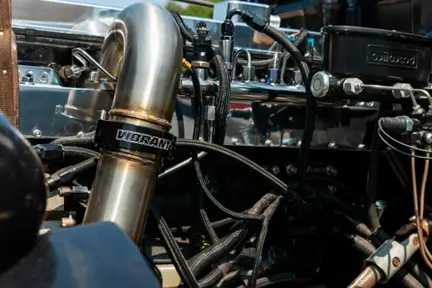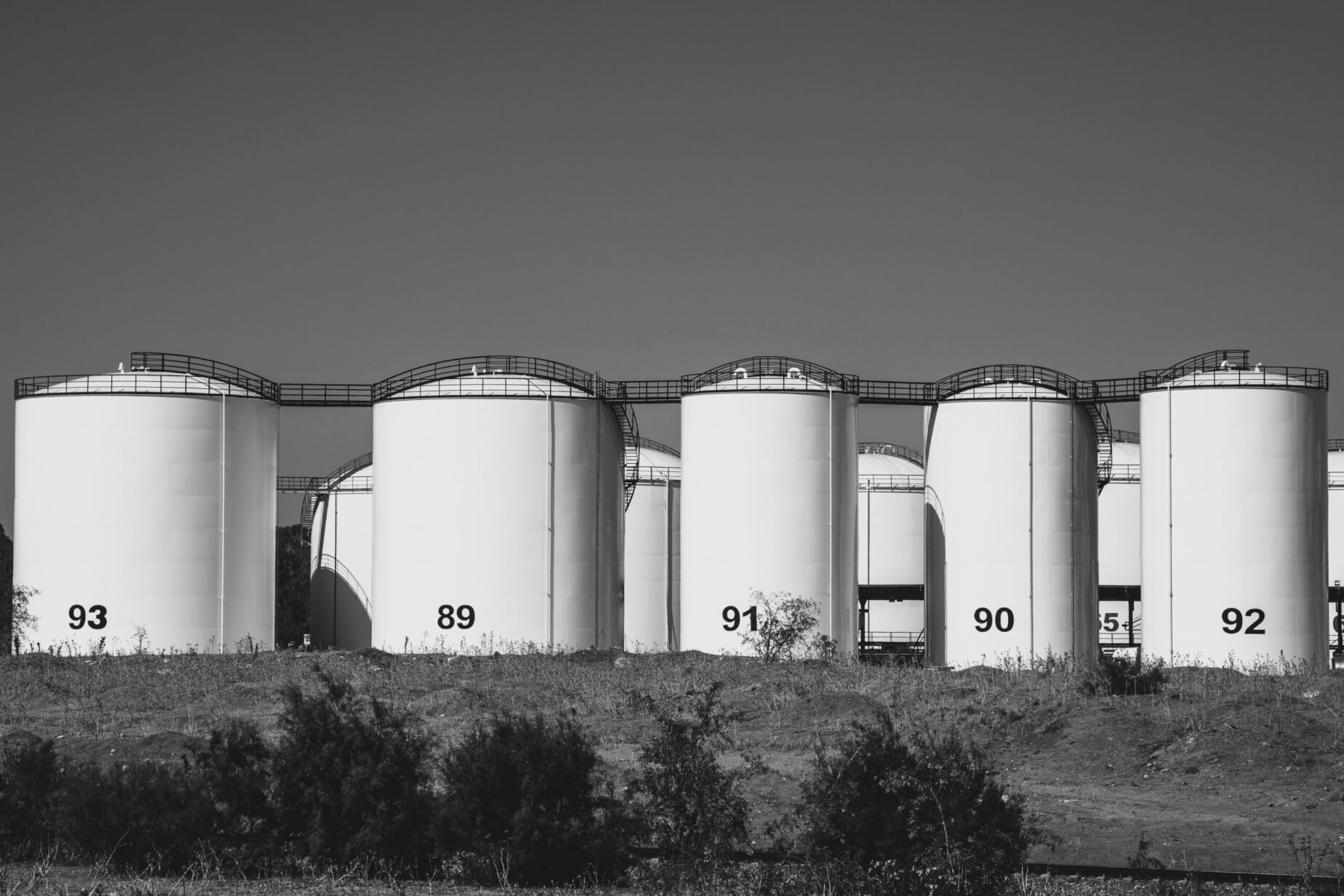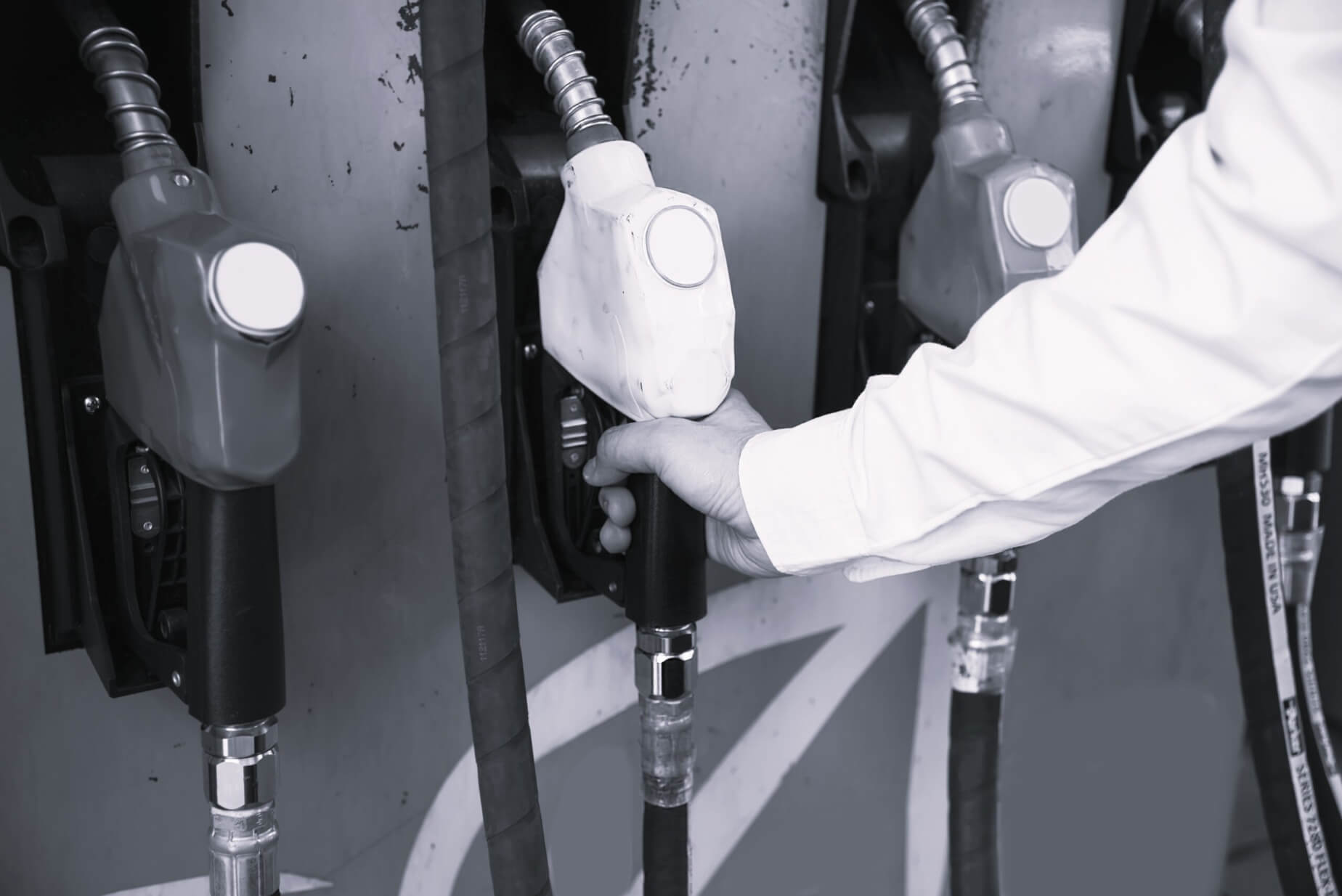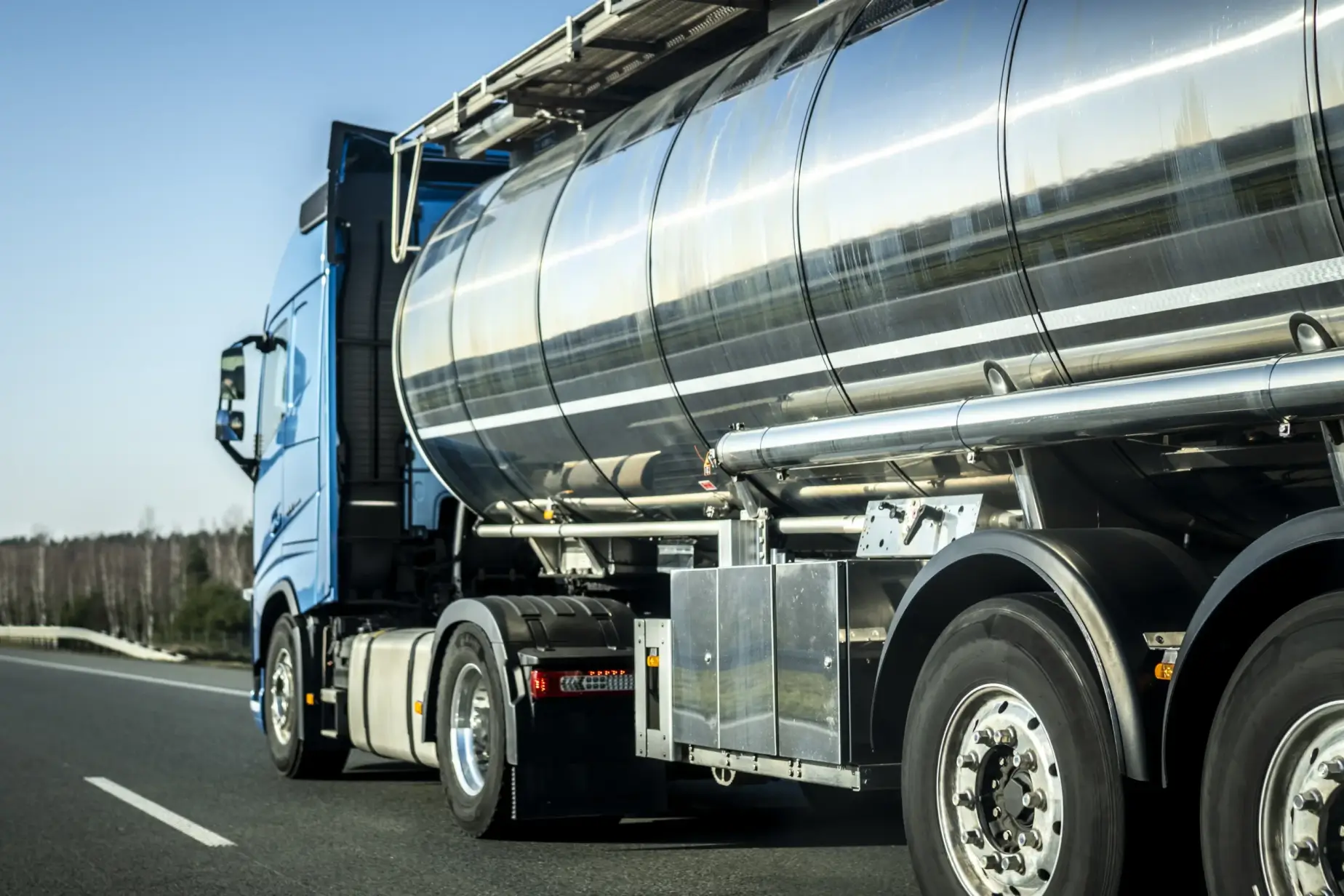
So, is all DEF fluid the same? Essentially, all DEF should be the same, but quality differences exist, impacting how much DEF is needed for optimal fuel efficiency. The variations in DEF quality can impact the effectiveness of this process. Using the wrong DEF mix can cause incomplete conversion of harmful nitrogen oxide (NOx), risking emission control. This, in turn, may lead to a failure to meet strict environmental standards such as Euro VI and EPA Tier 4.
What is Diesel Exhaust Fluid (DEF)?
Diesel Exhaust Fluid (DEF) is a solution comprising urea and water injected into the exhaust stream of diesel vehicles. Its purpose is to transform harmful NOx gases into nitrogen and water. Comprising about two-thirds deionized water and one-third urea, DEF is added to a separate tank in diesel vehicles.
The distinct color of DEF helps differentiate it from gasoline or diesel fuel.
What is Selective Catalytic Reduction and How Does It Work?
Selective Catalytic Reduction (SCR) is an advanced technology used in modern diesel vehicles to reduce harmful nitrogen oxides (NOx) emissions. This process requires diesel and a special fluid known as DEF (Diesel Exhaust Fluid), which is an aqueous urea solution made of deionized water and urea. When DEF is injected into the exhaust system, it reacts with the NOx to convert it into harmless nitrogen and water.
To use SCR effectively, diesel vehicles require a DEF reservoir that holds the fluid. Typically, DEF dispensers can be found at fuel stations, where drivers can find DEF to refill their tanks. DEF can also be sensitive to storage conditions, as it should not be exposed to direct sunlight and must be kept away from corrosive materials.
By using DEF, new diesel engines can help reduce the NOx emissions significantly, contributing to cleaner air and environmental sustainability. For those looking to learn more about DEF, it’s important to understand its role in enhancing vehicle performance while adhering to environmental regulations.
DEF Quality Standards You Need to Know
ISO 22241, an international standard, sets strict quality requirements for DEF across its production, storage, and distribution processes. DEF marketers whose products meet the ISO 22241 standards have the license to display the API Diesel Exhaust Fluid Certification Mark.
The American Petroleum Institute (API) Diesel Exhaust Fluid Certification Program is a voluntary effort to ensure the quality of DEF used in converters with selective catalytic reduction (SCR) in various applications.
DEF must adhere to ISO 22241 standards to ensure that transfer tanks and equipment are designed to preserve fluid purity and prevent potential engine damage.
The quality of DEF is influenced by factors such as the grade of urea used, the purity of the water, and the concentration of the solution. The best quality DEF contains 32.5% high-purity urea (AUS 32) and 67.5% deionized water.
Comparing Different Brands of DEF
Choosing the right DEF for your vehicle might seem tricky, but a few key factors can help you make a wise decision. While all DEF must have a urea concentration of 32.5%, brands can differ in terms of impurities. EPA standards dictate limits for impurities like iron, zinc, and aluminum, which can affect the Selective Catalytic Reduction (SCR) system. Cheaper DEF brands may push these limits, potentially causing premature SCR system failure.
Choosing a cheaper brand with lower-quality DEF can negatively impact engine performance and may lead to running out of DEF unexpectedly. Therefore, questioning, “Is all DEF the same quality?” remains pivotal in the decision-making process.
When comparing DEF differences in brands, Fuel Logic sets itself apart as a top-quality DEF brand, ensuring strict compliance with ISO 22241 standards. Renowned for its reliability and positive market reputation, Fuel Logic delivers DEF with precise urea concentration and minimal impurities.
How to Identify High-Quality DEF Fluid?
Here are proven tips to recognize high-quality DEF fluid during purchase:
- Choose clear DEF; cloudiness or color may indicate age or contamination.
- Check for a separate layer in the sample; the presence of a layer suggests possible oil contamination.
- DEF must meet ISO 22241 and API standards to ensure environmental protection and proper composition.
- Use a handheld DEF refractometer to confirm 32.5% urea concentration.
Impact of Using Low-Quality DEF Fluid
Quality control is essential for DEF as it’s directly injected into the SCR system. Low-quality DEF can result in severe component damage and equipment failure and void the manufacturer’s warranty, leading to costly repair expenses.
Short-Term Troubles:
Using low-quality DEF containing impurities like biuret, aldehydes, and insoluble can lead to immediate troubles. These impurities commonly block the SCR system, causing damage to nozzles, filters, and other components, which can lead to increased DEF consumption and the need to refill your DEF frequently. Moreover, the metal ions in impurities are toxic to the SCR system’s catalyst, impacting catalytic reduction efficiency.
Long-Term Damage:
In the long run, substandard DEF may cause corrosion and permanent damage to diesel engines and equipment, significantly impacting engine life. The deposits formed after burning inferior-quality urea solutions lead to blockages and decrease the catalyst’s lifespan. The low urea solution concentration affects NOx’s conversion rate, causing rapid consumption.
Factors Affecting DEF Quality
Here are the factors that directly impact DEF quality:
· The Importance of Deionized Water in DEF Production
The water used in DEF production is typically deionized water, which is known for its high purity. Deionized water is vital to prevent mineral and ion contamination. It is a non-conductor, achieved by removing cations and anions. Cations are removed because they harm the SCR system and directly impact its working.
· Urea Grade Impact on DEF Quality: Agricultural vs. Automotive
DEF production requires pharmaceutical or automotive-grade urea. The purity and composition of urea, along with the presence of ammonia, significantly impact DEF’s effectiveness and safety in reducing harmful emissions through the SCR system. Automotive-grade urea has limited impurities, ensuring that the amount of DEF used is effective. In contrast, agricultural-grade urea contains more impurities and may harm catalytic converters.
· Manufacturing and Transportation Processes: Preserving DEF Integrity
The processes involved in manufacturing and transporting DEF can significantly impact its integrity and the ability to put DEF through a catalyst effectively. Exposure to contaminants, temperature fluctuations, and improper handling are critical factors degrading DEF quality. Contaminants in DEF can include particles, dust, or other impurities that compromise its chemical composition. Above all, improper handling, like using contaminated equipment, can also introduce impurities.
Proper Storage and Handling of DEF Fluid
Here are the best storage and handling tips to maintain DEF fluid quality.
- Frozen DEF expands like water, but approved containers accommodate this expansion without affecting fluid effectiveness.
- DEF storage temperature should ideally range between 15°F and 77°F (-9°C and 25°C).
- Thoroughly clean the DEF tank fill neck and dispensing nozzle during each refill to prevent contamination.
- Check that DEF is stored in ISO-approved containers (stainless steel, polypropylene) to prevent corrosion.
Regulations and Compliance
Regulatory frameworks govern DEF production and sale to ensure compliance with environmental standards. These regulations, often outlined in documents like ISO 22241, set specific quality requirements for DEF. They cover aspects such as production, storage, and distribution. Adherence to these regulations is crucial to meet emission standards, such as Euro VI and EPA Tier 4.
Choosing the Right DEF: A Buyer’s Guide

High-quality DEF ensures optimal operation of the SCR system, reducing harmful emissions and maintaining engine efficiency. Poor DEF quality may lead to premature system failure, affecting performance and longevity.
The variety of DEF fluid on the market can pose challenges for buyers who order DEF in bulk. Therefore, there is a dire need for careful selection to avoid potential issues related to impurities, urea grade, and overall product quality.
· Identifying High-Quality DEF: Labels and Certifications
Identifying high-quality DEF involves checking for key labels and certifications such as API (American Petroleum Institute) and ISO 22241. Look for the API Diesel Exhaust Fluid Certification Mark, ensuring industry-standard compliance. These labels guarantee proper composition, minimal impurities, and compliance with emission standards.
· Key Considerations in Purchasing DEF
When purchasing DEF, buyers should consider several key factors for DEF Quality:
- Verify DEF purity to meet standards for optimal SCR system performance.
- Choose DEF from reputable manufacturers known for quality products.
- Check the DEF expiration date to ensure optimal performance.
- Opt for DEF packaged in materials like stainless steel or polypropylene.
- Confirm DEF compatibility with your vehicle’s SCR system specifications.
· Understanding and Interpreting Safety Data Sheets for DEF
SDS offers key details on DEF, such as its chemical composition, potential hazards, and safe handling, storage, and disposal guidelines. It helps buyers identify the product, understand its chemical makeup, and know potential hazards, especially in vehicles with diesel engines.
The SDS outlines first-aid measures, fire-fighting procedures, and steps for accidental releases. It also includes disposal recommendations, transport guidelines, and regulatory information to ensure safety standards and environmental regulations compliance.
· Selecting the Right DEF Supplier: What to Look For?
When selecting a DEF supplier, prioritize a positive reputation for quality products and services. Ensure the suppliers adhere to industry standards and offer excellent customer service. However, if you require assistance selecting the right diesel fuel supplier, don’t hesitate to contact us for expert guidance and support.
Common Misconceptions About DEF
| Myths about DEF | Facts |
| DEF damages diesel engines. | It enhances performance and reduces emissions in SCR systems, making it vital for maintaining optimal exhaust gas quality. |
| More DEF equals better performance. | Precise dosage is crucial; overdosing can lead to SCR system issues. |
| DEF is harmful to humans and animals. | DEF is non-toxic and safe to handle. |
| DEF quality doesn’t matter. | Poor-quality DEF can lead to SCR system malfunctions and increased emissions. |
Understanding DEF Fluid Pricing
The DEF market encompasses a range of prices influenced by brand reputation, quality standards, and packaging. Due to the high demand for urea, it is synthetically produced in various quality grades, which can affect the gallon of DEF produced. As a result, DEF is relatively expensive due to the premium quality urea used in its composition.
Consumers, businesses, and fleet managers should know DEF pricing dynamics to make informed decisions and ensure cost-effective solutions.
· The Cost Factor: Why Prices Vary
Several factors in the production and distribution process contribute to DEF’s varying prices. Key contributors include manufacturing costs, the quality of raw materials, especially the grade of urea used, supply chain and distribution expenses, regional market variations, and economies of scale.
Furthermore, market demand, regulatory changes, and global economic conditions significantly influence DEF prices. Factors such as fluctuations in raw material costs, transportation expenses, and compliance with evolving environmental standards also add to the dynamic nature of DEF pricing.
· Is Expensive Always Better?
The price of DEF doesn’t always reflect its quality. Higher-priced options may offer better quality or certifications, but the highest price doesn’t guarantee the best value. Quality DEF is available in different price ranges, so consider factors beyond price.
You can purchase excellent DEF from us at reasonable prices, so order now for convenient shipping of DEF to your address.
The Environmental and Health Impact of DEF
Diesel exhaust exposure is known to lead to severe health conditions, particularly respiratory issues like asthma. DEF’s role in reducing harmful emissions supports cleaner air, benefiting children and older people who are more prone to respiratory problems. Therefore, using DEF promotes public health by lessening the adverse effects of diesel emissions on individuals and communities.
Conclusion

Diesel exhaust fluid plays a crucial role in mitigating the environmental impact of diesel engines. While DEF fluid should theoretically be uniform, variations in quality exist, prompting the question: is DEF fluid all the same?
Adhering to ISO 22241 standards, selecting reputable suppliers, and understanding factors affecting DEF quality are key. Choosing the right DEF fluid ensures compliance with emission standards, supports engine longevity, and promotes cleaner air for a healthier environment.
FAQs (Frequently Asked Questions)
Is All DEF Fluid The Same even in Different Brands and types?
While all Diesel Exhaust Fluid (DEF) should ideally be the same, different brands and options exist when purchasing DEF for your diesel truck. Quality variations may be present among different products.
How do DEF standards like ISO 22241 affect product quality?
ISO 22241 standards are vital for maintaining consistent and high-quality DEF. They define specific requirements for DEF, ensuring its proper composition, production, storage, and distribution.
Can I use agricultural-grade urea for DEF?
No, agricultural-grade urea should not be used for DEF. It may contain impurities, such as biuret, which could harm the SCR system in diesel engines.
Does brand matter with DEF?
While the chemical composition of DEF is standardized according to ISO 22241, variations in manufacturing processes, quality control, and storage conditions may differ among different brands. So, choosing a reputable and certified DEF brand that adheres to industry standards is essential to ensure optimal performance and avoid potential issues with your vehicle’s SCR system.
What should I look for when buying DEF?
No idea about the best DEF fluid and asking the same question “Is all def fluid the same”. The tip is when buying DEF, try to look for brands that adhere to ISO 22241 standards. Check for the recommended urea concentration, the absence of impurities, and compliance with industry regulations. Furthermore, the manufacturer’s reputation and any certifications, such as API or ISO, should be considered, indicating DEF quality.
Can the wrong DEF damage my vehicle?
Using the wrong DEF can harm your vehicle, especially the SCR system. It may lead to significant component damage, equipment failure, and even void the manufacturer’s warranty, resulting in costly repair expenses. Knowing the answer to the question “are all def fluid the same” may avoid costly repairs for your vehicle.
Does the purity of water matter in DEF production?
Yes, water purity is crucial in DEF production. Using deionized water, free from impurities and minerals, is essential for maintaining the high quality and effectiveness required for DEF. Contaminants in water can compromise the SCR system and DEF’s emission reduction capabilities.
Are there different grades of DEF fluid?
Yes, there is a standard grade for DEF defined by ISO 22241. All DEF must adhere to this international standard to ensure uniform quality across brands. The ISO 22241 standard specifies critical parameters such as urea concentration, impurity limits, and water purity requirements.






